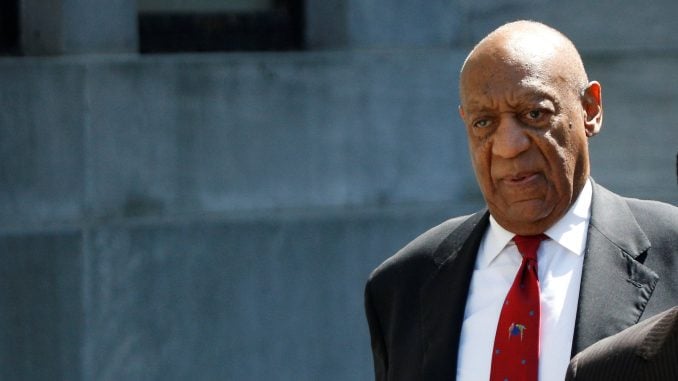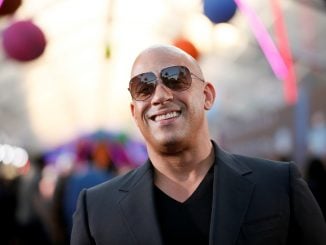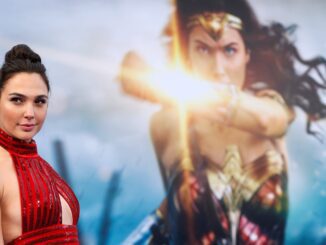
NORRISTOWN, Pa. — Comedian Bill Cosby was convicted on Thursday of drugging and sexually assaulting a onetime friend in 2004, marking the first such conviction of a celebrity since the #MeToo movement that has brought down rich and powerful men for their treatment of women.
Cosby, 80, best known as the lovable father from the 1980s TV hit “The Cosby Show,” faces up to 10 years in prison for each of three counts of aggravated indecent assault against Andrea Constand, 45, following a three-week trial at the Montgomery County courthouse in Norristown, Pennsylvania.
After weeks of maintaining decorum during the trial, Cosby exploded following the verdict when prosecutors asked the judge to take him into custody, saying he was a flight risk in part because he owned a plane.
“He doesn’t have a plane, you a–hole!” Cosby responded in a booming voice as he leapt to feet.
Moments earlier, as the verdict was read, Cosby looked down with a sad expression. Lili Bernard, one of his many accusers, began sobbing. Constand sat stone-faced.
Judge Steven O’Neill ruled that Cosby could remain out of jail on $1 million bail pending sentencing at a later date, as long as he surrendered his passport and remained at home.
Cosby then left the courthouse with his lawyers and publicist.
“The fight will go on,” defense lawyer Thomas Mesereau told reporters, insisting on Cosby‘s innocence.
The conviction marks the downfall of a man once celebrated as “America’s Dad” but whose reputation was ruined after some 50 women accused him of similar offenses going back decades.
Only one of those cases was recent enough to be eligible for prosecution, that of Constand, a former administrator for the women’s basketball team at Temple University, Cosby‘s alma mater.
Attorney Gloria Allred, who represents 33 of the Cosby accusers, rejoiced that Cosby was found “guilty, guilty, guilty.”
“We are so happy that finally we can say, women are believed, and not only on #MeToo, but in a court of law,” Allred told reporters.
Other Cosby accusers celebrated the verdict with hugs, cries, and applause.
“It’s a victory not just for the 62 of us who have come forward but for all survivors of sexual assault, female and male,” Bernard told reporters, using a high estimate of the number of Cosby‘s accusers. “I feel like my faith in humanity is restored.”
The seven-man, five-woman jury reached a unanimous verdict after deliberating for 14 hours over two days.
Less than year ago, a different jury was deadlocked after six days of deliberations on the same charges, prompting the judge to declare a mistrial. Prosecutors decided to retry him.
Soon after the first trial, a series of women leveled sexual assault and harassment accusations against men in media, entertainment and politics, giving rise to the #MeToo and #TimesUp movements that encouraged women go public with personal stories of abuse, in some cases after years of silence.
Like many of Cosby‘s other accusers, Constand said she was drugged and violated while unable to defend herself.
Constand testified she went to Cosby‘s house to discuss a potential career change when he gave her three blue pills he said would relax her.
She said the pills made her feel woozy, and that Cosby walked her to a sofa and laid her down.
“The next thing I recall, I was kind of jolted awake,” Constand said from the witness stand. “I was not able to do a thing.”
Cosby has said any sexual encounters were consensual, and his lawyers portrayed Constand as a “pathological liar” who falsely depicted their romantic relationship as an attack. Five other women also testified to similar treatment from Cosby, whose lawyers argued that the women were fabricating stories in search of wealth and fame.
Prosecutors countered that the real scam artist was Cosby, who hid behind his kindly TV persona to win the trust of women he then drugged and sexually assaulted.
The prosecution case was bolstered by the five additional accusers who were allowed to testify. In the first trial, O’Neill allowed only one accuser besides Constand to take the witness stand.
Cosby had been a transcendent figure in show business, coming up as a black comedian during the civil rights movement of the 1960s. He won over white audiences with a clean routine that largely avoided the controversies of the day. He then began a successful television career on the series “I Spy,” and later as a kids’ favorite with the Saturday morning cartoon “Fat Albert and the Cosby Kids.”
His most famous role came as Dr. Heathcliff Huxtable, the wise and witty father of an affluent black family, on “The Cosby Show” from 1984 to 1992.



